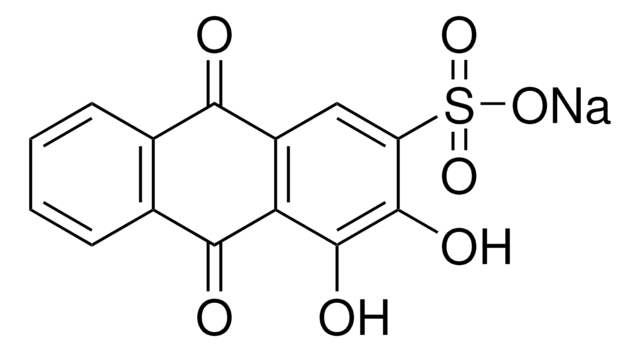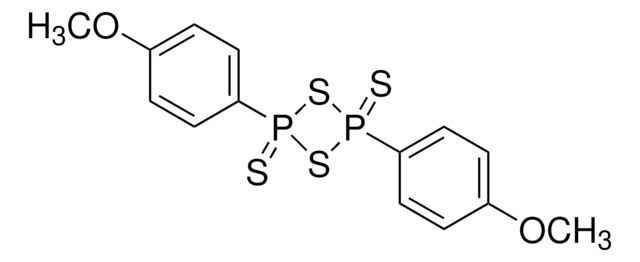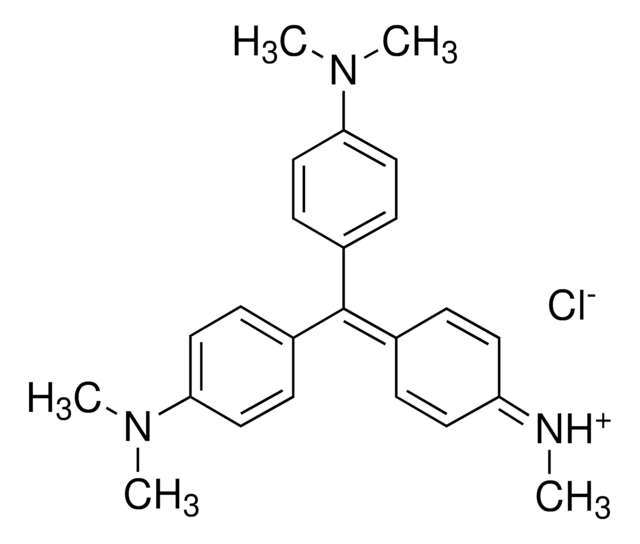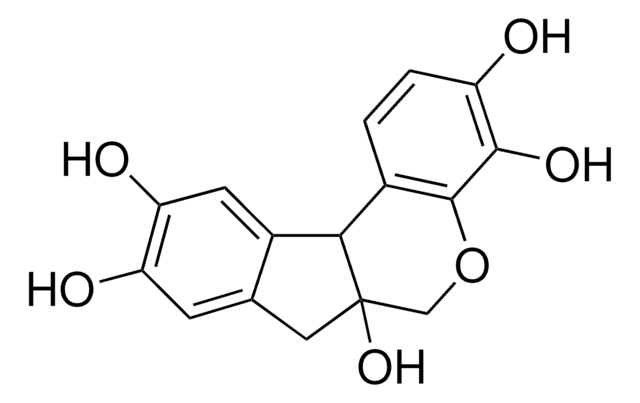323829
Methyl Green
zinc chloride salt, <0.5% crystal violet, Dye content 80 %
Synonym(s):
Ethyl Green
About This Item
Recommended Products
Quality Level
Assay
>75.0% (HPLC)
form
solid
composition
Dye content, 80%
technique(s)
titration: suitable
impurities
<0.5% crystal violet
pH
0.2-1.8, yellow to blue
mp
>300 °C (lit.)
solubility
water: 1 mg/mL
λmax
420 nm (2nd)
635 nm
ε (extinction coefficient)
≥14000 at 311-317 in water at 0.005 g/L
≥50000 at 629-635 in water at 0.005 g/L
≥9000 at 420-426 in water at 0.005 g/L
application(s)
diagnostic assay manufacturing
hematology
histology
storage temp.
room temp
SMILES string
[Cl-].[Br-].Cl[Zn]Cl.CC[N+](C)(C)c1ccc(cc1)\C(c2ccc(cc2)N(C)C)=C3/C=C\C(C=C3)=[N+](\C)C
InChI
1S/C27H35N3.BrH.3ClH.Zn/c1-8-30(6,7)26-19-13-23(14-20-26)27(21-9-15-24(16-10-21)28(2)3)22-11-17-25(18-12-22)29(4)5;;;;;/h9-20H,8H2,1-7H3;4*1H;/q+2;;;;;+2/p-4
InChI key
RRKSQWOQZFIQKW-UHFFFAOYSA-J
Looking for similar products? Visit Product Comparison Guide
General description
Application
Other Notes
Signal Word
Danger
Hazard Statements
Precautionary Statements
Hazard Classifications
Aquatic Chronic 2 - Eye Dam. 1 - Skin Corr. 1B - STOT SE 3
Target Organs
Respiratory system
Storage Class Code
8A - Combustible corrosive hazardous materials
WGK
WGK 3
Personal Protective Equipment
Regulatory Listings
Regulatory Listings are mainly provided for chemical products. Only limited information can be provided here for non-chemical products. No entry means none of the components are listed. It is the user’s obligation to ensure the safe and legal use of the product.
PRTR
Class I Designated Chemical Substances
JAN Code
323829-5G:
323829-25G:
323829-VAR:
323829-BULK:
Choose from one of the most recent versions:
Already Own This Product?
Find documentation for the products that you have recently purchased in the Document Library.
Customers Also Viewed
Our team of scientists has experience in all areas of research including Life Science, Material Science, Chemical Synthesis, Chromatography, Analytical and many others.
Contact Technical Service













